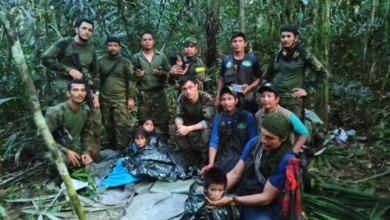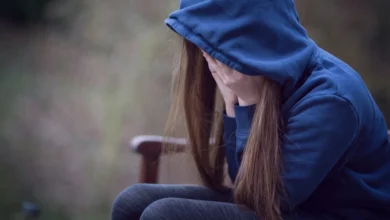Balsam al-Saad took a moment on 1 May to assess a momentous first year at Cairo’s only children’s bookstore, and to survey the long road ahead. Readings, drawings, singing, talks and art events took place throughout the day, and some fans of the store and affiliated publishing houses stopped by just to shake Saad’s hand.
After all, it isn’t easy to publish and sell Arabic-language children’s books in a country where many parents are focused on teaching their child to read in a foreign tongue.
Saad has undertaken not just the difficult job of selling children’s books, but the even harder one of igniting a passion for Arabic children’s literature. Because of this, the store has a markedly different feel from other high-end bookstores in Cairo. While most stores relegate Arabic children’s literature to a small shelf or corner, at Al-Balsam it is foreign-language children’s books that get the less-desirable shelf space upstairs.
Saad is part of a growing core of Arab educators, authors, and publishers who believe that, for a nation to succeed, its citizens must read and write confidently in their own language.
“I’m happy if my children are proficient in ten languages,” Saad says. “But they have to be proficient in Arabic.”
Saad, originally a mechanical engineer, was inspired by the “sorry state of Arabic children’s literature” to founded the Dar Al-Balsam publishing house in 2004. There, she discovered that publishing quality books took a great deal of time. She decided she wanted to speed things up by importing books from other publishing houses around the region. For several years, she distributed her own and other publishers’ children’s books to schools, stores and libraries.
Finally, she decided, “This is worthwhile. Why should we hide this in an office?”
On 1 May 2010, Egypt’s first children’s bookstore opened its doors. In its first year, the store hosted events with award-winning Egyptian authors like Walid Taher, Afaf Tobbala and Rania Hussein Amin, as well as award-winners from abroad like Lebanese writer Fatima Sharafeddine and illustrator Sinan Hallak. Children learned origami and calligraphy, discussed books and wrote their own, while parents and educators heard about the latest titles.
But Saad wants to do more. One of the store’s main aims, she says, has to be getting more bodies in the door: “I think we have been working too quietly.”
Many Egyptians haven’t crossed Al-Balsam’s threshold because they perceive new stores like Diwan, Alef and Al-Balsam as the province of elites. And it’s true that the prices of some books in the shop are out of the reach of working-class Egyptians. When producing their own line of Arabic children’s books, Dar Al-Balsam made the decision to focus on production quality over affordability. However, the bookstore is far from elitist. "We cater to everyone,” says Saad.
While most Egyptians can’t afford the beautifully produced titles that go for LE 30, LE 50, or LE 70, there are also very good children’s books that sell for a more affordable LE 3 or LE 5.
According to store manager Inas Sami, Al-Balsam stands apart for other reasons. "It’s how we treat kids. There’s no sense of 'Don’t touch, don’t do this,’" she says. "You have a special experience when you come here.”
In the weeks since the 25 January, the store has noticed “a huge slowdown” as Egyptians have become more cautious about spending money during this transition period. But Saad felt certain that the revolution meant a brighter future for Arabic children’s literature.
When speaking of the post-revolutionary period, Saad's voice takes on a forcefulness that is otherwise lacking. “I am certain that, after the revolution, things will change,” she says. “There is pride being rediscovered, in identity and in self. Even kids want to discover their Egyptian identity.”
She says that, before the revolution, she worried about how to convince parents and children to value Arabic books. Now she wonders how she can move quickly enough to fill demand.
“I think we have beautiful things, but I don’t think we have enough. Still more work will have to be done.”




